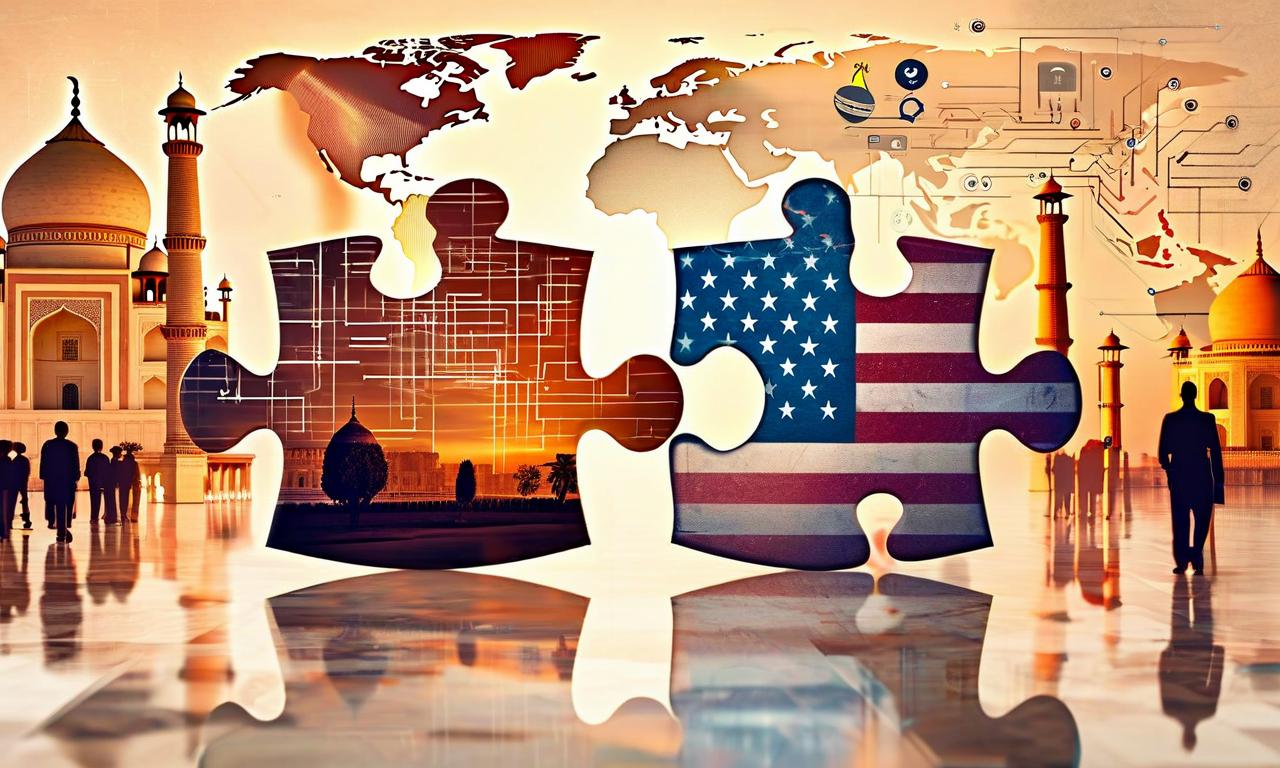Biden Officials Propose Five-Pillar Strategy to Revitalize India-US Relations
Key officials from the Biden administration have outlined a five-pillar framework to reinvigorate India-US relations. The strategy focuses on technology cooperation, economic collaboration, defense partnership, intelligence sharing, and global problem-solving. The proposal aims to address current tensions, including tariffs and cancelled trade negotiations. Officials emphasize the strategic importance of strong India-US ties, warning that continued strain could push India closer to China and Russia. The framework represents a significant effort to reset and strengthen the relationship between the two nations.

*this image is generated using AI for illustrative purposes only.
In a significant development for India-US diplomatic ties, key officials from the Biden administration have outlined a comprehensive strategy to reinvigorate the relationship between the two nations. Kurt M. Campbell and Jake Sullivan, in an article published in Foreign Affairs, have proposed a five-pillar framework aimed at addressing the current strain in bilateral relations.
The Five-Pillar Approach
The proposed strategy encompasses five key areas of cooperation:
Technology Cooperation: A 10-year plan covering cutting-edge fields such as AI, semiconductors, biotech, quantum computing, clean energy, telecommunications, and aerospace.
Economic Collaboration: Enhanced economic ties, including the pursuit of a bilateral trade agreement.
Defense Partnership: Strengthening military cooperation through co-development and co-production initiatives.
Intelligence Sharing: Increased collaboration in intelligence matters.
Global Problem-Solving: Joint efforts to address worldwide challenges such as climate change, food security, and public health.
Addressing Current Tensions
The officials acknowledge existing strains in the relationship, pointing to specific issues such as:
- A cumulative 50% tariff imposed on India during the Trump administration
- Cancelled trade negotiations
They suggest that the Trump-era approach, despite initial tensions, often led to dealmaking. However, the Biden administration appears to be taking a more structured, long-term approach to rebuilding ties.
Geopolitical Considerations
Campbell and Sullivan emphasize the strategic importance of strong India-US relations, warning that continued strain could potentially push India closer to China and Russia. They cite Prime Minister Modi's recent meetings with Chinese President Xi Jinping and Russian President Vladimir Putin at the Shanghai Cooperation Organisation Summit as examples of India's diplomatic balancing act.
Shift in US Perspective
In a notable policy stance, the officials advocate for the US to avoid hyphenating India-Pakistan relations. They assert that US interests in India far outweigh those in Pakistan, signaling a potential shift in the US's South Asia strategy.
Looking Ahead
The proposed framework represents a significant effort by the Biden administration to reset and strengthen the India-US relationship. By focusing on areas of mutual interest and benefit, from technology to global challenges, the strategy aims to create a more robust and resilient partnership between the world's two largest democracies.
As both nations navigate complex global dynamics, the success of this proposed strategy could have far-reaching implications for regional stability, economic growth, and technological advancement in the Indo-Pacific region and beyond.
























